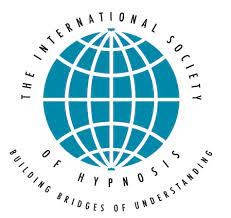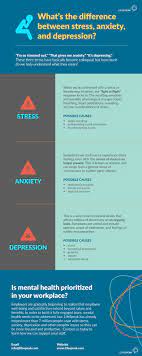The Power of Hypnosis: Exploring the Benefits of Joining a Hypnosis Association
Hypnosis, often misunderstood and misrepresented, is a powerful tool that has been used for centuries to promote personal growth, healing, and positive change. Whether you are an experienced hypnotherapist or simply curious about the potential of hypnosis, joining a hypnosis association can be a transformative step in your journey.
What is a Hypnosis Association?
A hypnosis association is a professional organization that brings together individuals with an interest in hypnotherapy. These associations provide a platform for practitioners to connect, learn from one another, and stay updated on the latest advancements in the field. They also serve as valuable resources for anyone seeking reputable and qualified hypnotherapists.
Benefits of Joining a Hypnosis Association:
- Continuing Education: By becoming a member of a hypnosis association, you gain access to various educational resources such as workshops, seminars, webinars, and conferences. These opportunities allow you to expand your knowledge base, learn new techniques, and enhance your skills as a hypnotherapist.
- Networking Opportunities: Connecting with like-minded professionals can be invaluable in any field. A hypnosis association provides you with networking opportunities where you can meet experienced practitioners, exchange ideas, collaborate on projects, and build supportive relationships within the community.
- Professional Development: Being part of an association demonstrates your commitment to professionalism and ethical practice. Many associations offer certifications or accreditations that can enhance your credibility as a hypnotherapist and attract potential clients who seek trusted practitioners.
- Access to Research and Information: Hypnosis associations often have access to research studies and publications related to the field. Staying informed about current research findings allows you to stay up-to-date with evidence-based practices and offer the best possible care to your clients.
- Advocacy and Support: Associations advocate for the recognition of hypnotherapy as a legitimate and effective therapeutic modality. They work towards promoting public awareness, debunking misconceptions, and ensuring that hypnotherapists are respected and valued within the healthcare community.
- Marketing and Referral Opportunities: Many hypnosis associations have directories or referral services that connect individuals seeking hypnotherapy with qualified professionals. Being listed in such directories can increase your visibility and attract potential clients who are actively seeking your services.
Choosing the Right Hypnosis Association:
When considering joining a hypnosis association, it is important to research and evaluate different options. Look for associations that align with your professional goals, offer relevant resources, have a strong reputation within the field, and prioritize ethical standards of practice.
In conclusion, joining a hypnosis association can be immensely beneficial for both experienced practitioners and those new to the field. It provides opportunities for growth, learning, networking, and professional development. By becoming part of a supportive community of like-minded individuals, you can expand your knowledge, enhance your skills, and contribute to the advancement of hypnotherapy as a respected healing modality.
Remember, the power of hypnosis lies not only in its ability to transform lives but also in the collective strength of those who believe in its potential. Joining a hypnosis association is an investment in yourself and in the future of this remarkable practice.
Frequently Asked Questions About Hypnosis Association: Legitimacy, Types, Organizations, and Medical Approval
- How legit is hypnosis?
- What are the 4 types of hypnosis?
- What is the best hypnosis organization?
- Is hypnosis approved by the American Medical Association?
How legit is hypnosis?
Hypnosis is a legitimate therapeutic technique that has been recognized and utilized by healthcare professionals for many years. It is widely accepted as a valid approach to promote positive change, personal growth, and healing in various areas of life. However, it is important to have a clear understanding of what hypnosis is and what it can and cannot do.
Hypnosis involves inducing a relaxed state of focused attention, often referred to as a trance. During this state, individuals are more open to suggestion and are able to access their subconscious mind. It is important to note that hypnosis does not involve mind control or manipulation; individuals under hypnosis still have free will and cannot be forced to do anything against their values or beliefs.
The effectiveness of hypnosis varies from person to person. Some individuals may be highly responsive and experience profound changes, while others may have a more subtle response. The success of hypnosis depends on various factors such as the individual’s willingness to participate, the skill of the hypnotherapist, and the specific goals being addressed.
Hypnosis has been shown to be effective in a wide range of applications, including managing stress and anxiety, overcoming phobias, improving sleep patterns, enhancing performance in sports or academics, reducing chronic pain, aiding in smoking cessation or weight loss efforts, and promoting emotional well-being.
It is worth noting that hypnosis should always be conducted by qualified professionals who adhere to ethical guidelines. Seeking out certified hypnotherapists who have undergone proper training ensures that you receive safe and effective care.
While hypnosis has gained recognition within the medical community and has been backed by scientific research showing its efficacy in various contexts, it is important to approach any claims made about its benefits with critical thinking. Like any therapy or treatment modality, results can vary depending on individual factors.
In conclusion, hypnosis is a legitimate therapeutic technique that can bring about positive changes when used appropriately by qualified professionals. It is important to approach it with an open mind, seek reputable practitioners, and have realistic expectations about its potential outcomes.
What are the 4 types of hypnosis?
There are various approaches to hypnosis, and while it is not universally agreed upon that there are specifically four types of hypnosis, the following are commonly recognized as different approaches or techniques within the field:
- Traditional Hypnosis: This type of hypnosis follows the classic approach that involves inducing a trance-like state through relaxation and suggestion. The hypnotist guides the individual into a deep state of relaxation, allowing access to their subconscious mind to address specific issues or promote positive changes.
- Ericksonian Hypnosis: Named after renowned psychiatrist and hypnotherapist Milton H. Erickson, this approach emphasizes indirect suggestion and storytelling techniques. Rather than using direct commands, Ericksonian hypnosis utilizes metaphors, anecdotes, and language patterns to bypass conscious resistance and communicate with the subconscious mind.
- Neuro-Linguistic Programming (NLP): NLP is a psychological approach that incorporates hypnosis as one of its tools. It focuses on how language and communication patterns impact our thoughts and behaviors. NLP techniques aim to reprogram limiting beliefs and patterns by accessing the subconscious mind through specific linguistic patterns and visualizations.
- Self-Hypnosis: As the name suggests, self-hypnosis refers to an individual inducing a hypnotic state on themselves without the assistance of a hypnotist. It involves learning relaxation techniques, visualization exercises, and self-suggestion in order to achieve desired outcomes such as stress reduction, personal development, or behavior modification.
It’s important to note that these categories are not mutually exclusive or exhaustive; they simply represent different approaches or techniques within the broader field of hypnosis. Additionally, there may be other variations or hybrid methods developed by individual practitioners based on their training and experience.
What is the best hypnosis organization?
Determining the “best” hypnosis organization can be subjective, as it depends on individual preferences, goals, and geographical location. However, there are several reputable hypnosis organizations that are widely recognized within the field. Here are a few well-regarded hypnosis associations:
- American Society of Clinical Hypnosis (ASCH): ASCH is one of the oldest and largest professional hypnosis organizations in the United States. It focuses on the clinical applications of hypnosis and offers training, certification, and resources for healthcare professionals.
- National Guild of Hypnotists (NGH): NGH is an international organization that provides education, certification, and networking opportunities for hypnotherapists. It offers a wide range of resources and promotes ethical practice within the field.
- International Association of Professional Conversational Hypnotists (IAPCH): IAPCH specializes in conversational hypnosis techniques and offers training programs and certifications for practitioners interested in this approach.
- Society of Psychological Hypnosis (Division 30 of the American Psychological Association): This division focuses on integrating hypnosis with psychological research and practice. It provides resources, conferences, and networking opportunities for psychologists interested in using hypnosis as part of their work.
- International Medical & Dental Hypnotherapy Association (IMDHA): IMDHA is dedicated to promoting the use of hypnotherapy within medical and dental settings. It offers certification programs specifically tailored to healthcare professionals.
It’s important to thoroughly research each organization’s offerings, values, membership benefits, and requirements to determine which aligns best with your interests and goals as a practitioner or enthusiast in the field of hypnosis.
Is hypnosis approved by the American Medical Association?
The American Medical Association (AMA) does not have an official stance on hypnosis as a therapeutic modality. However, it is important to note that hypnosis has gained recognition and acceptance within the medical and psychological communities over the years.
Many healthcare professionals, including physicians, psychologists, and therapists, incorporate hypnosis into their practice and recognize its potential benefits. Hypnosis is commonly used as an adjunctive therapy for various conditions such as chronic pain management, anxiety disorders, smoking cessation, weight loss, and more.
While the AMA does not provide specific guidelines or endorsements for hypnosis, it is essential to consult with individual healthcare professionals who are experienced in hypnotherapy to understand their qualifications, training, and approach to ensure safe and effective treatment.
It’s worth mentioning that there are other reputable organizations such as the American Society of Clinical Hypnosis (ASCH) and the Society for Clinical and Experimental Hypnosis (SCEH) that focus on promoting education, research, and ethical practice of hypnosis within a clinical setting. These organizations provide resources for professionals seeking to incorporate hypnosis into their practice.
Ultimately, when considering hypnosis as a therapeutic option, it is recommended to consult with qualified healthcare professionals who have expertise in this area and can guide you based on your specific needs.


